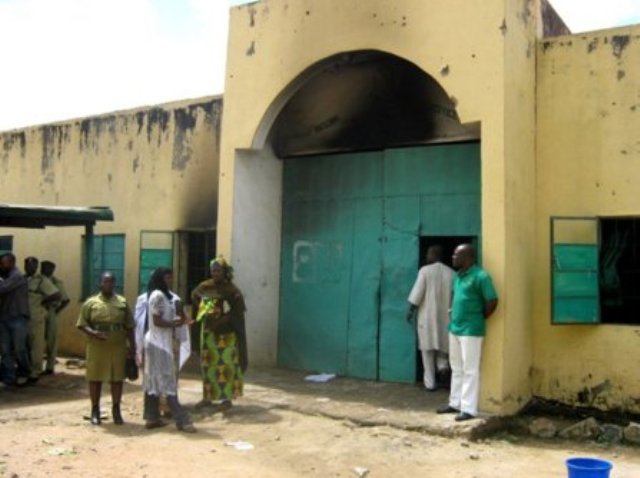
PRISONS in Nigeria are the antithesis of the primary basis for their existence. They are filthy, overcrowded, inhuman nests that breed criminals instead of penitent inmates. They convert human beings who are unlucky to spend time there to animals, the Vice-President, Yemi Osinbajo, says. Therefore, the plan to reform the system is noble, but the national archives are filled with reports on the rot, which the government has abandoned.
The brutal nature of the prisons gained currency again this month when an NGO, the Prisoners Rehabilitation and Welfare Action, presented its research work undertaken collaboratively with the Nigerian Prisons Service to the Federal Government. One of the highlights at the ceremony was the gripping narration of the dehumanising conditions at the Port Harcourt Prisons by the Minister of Interior, Abdulrahman Dambazau. The minister, who represented Osinbajo, recounted that the prisons, built for 800 inmates in 1918, accommodated over 5,000 inmates. This is outrageous.
This is the harsh reality of life in Nigerian prisons, which the NPS Controller-General, Ahmed Ja’afaru, attested to at the event. According to the CG, there were 72,179 inmates in the 227 prisons nationwide as of December 2017. Out of this number, 70,769 or 98 per cent were males; while two per cent or 1,401 were females. Looking at Nigeria’s population, estimated by the National Bureau of Statistics at 193 million, there is a temptation to dismiss the prison figure as inconsequential; but this is just the tip of the iceberg.
The real quandary is that many of the detainees are awaiting trial. The NPS says that 67 per cent or 48,688 of the figure given above were awaiting trial; while just 33 per cent or 23,491 had been convicted. In the Port Harcourt Prisons, 3,700 of the 5,000 detainees are awaiting trial. Dambazau says the lopsidedness promotes dangerous dynamics, including injustice, in the system.
For one, most of those awaiting trial are locked up for years without justification. The rigorous implementation of a constitutional provision that chief judges of the 36 states should inspect the prisons within their jurisdictions regularly would have reduced this systemic malaise. Therefore, the first step is for these judges to embark on this measure and set free those unjustly held.
Among other avoidable eccentricities, the sluggish criminal justice administration system, the abuse of police power of arrest, poor staffing and welfare, inadequate or obsolete work tools, lack of transport infrastructure and abysmal funding stick out sorely in the prison system. Combined, these ailments have pushed it to the point of a complete breakdown.
For instance, the police randomly arrest many people on flimsy excuses, who spend years in jail. If they ever make it to court, their trial lasts for years. Ajayi Adetola, 37, is an example. He was incarcerated in the Kirikiri Prisons in Lagos on a trumped-up charge of armed robbery, as the court that set him free later found out. Police recklessness caused his misery. His daily diet comprised a breakfast of beans and taking of gari for lunch and dinner, for five years. Government should make the police accountable for their impunity.
Funding is miserable. The 2018 budget for inmates’ feeding is N17 billion. It was calculated at N450 (N300 for food and N150 for gas allowance) per day for an inmate, says the NPS. With the high cost of food in Nigeria, this is a byword for starvation. While the Senate Committee on Interior wants it increased to N500 per meal or N1,500 daily, it has no idea of how this increment will be funded. In essence, the problem will linger.
The erstwhile Goodluck Jonathan government intervened in the feeding miasma in the prisons in January 2015 by increasing the daily food allowance from N200 per inmate to N450. The policy failed because the source of funding was neither considered nor stated. By September 2017, the Federal Government already owed food vendors N5.6 billion. As a result, prisoners depend on NGOs and faith-based organisations for their feeding.
Inmates suffer needlessly when they have health concerns. In September 2017, inmates at the Ogwashi-Uku Prisons, Delta State, mourned an awaiting trial detainee shortly after they contributed N5,000 for his treatment in the hospital. The prisoners alleged that the fellow died because the authorities did not give him proper medical attention.
Nigerian prisons are failing in their critical mission of reforming offenders. It is a long-running saga, so it is time for concrete redemptive government action. The first step is to implement a workable criminal justice administration system. The proposal by the Federal Government, which wants to establish special courts within prison complexes to speedily dispense with some petty cases, should be pursued with vigour. New prisons have to be built and current ones refurbished to accommodate the rising number of offenders. The NPS should be well equipped with operational vehicles and IT gadgets.
However, any reform will be inconclusive without amending the 1999 Constitution, which, for now, vests the running of prisons solely in the Federal Government. Many petty offenders in remote LGs are languishing in overcrowded jails because of this. This administrative impediment has to be sorted out by letting the centre, states and local governments be involved. In the 1990s, the United Kingdom introduced privately managed prisons under the Prisons Finance Initiative to ameliorate its own situation. As of September 2017, there were 14 private prisons there, the British Justice Department said. In the United States, a think tank, the Pew Research Centre, said eight per cent of the prisons there were privately run. Consequently, Nigeria has to adopt the model that suits it. However, President Muhammadu Buhari, his Minister of Interior and the NPS should intervene in this mess and make Nigerian prisons habitable ahead of the constitution amendments.
END

Be the first to comment